第9章
"And though thy son," he cried, "has 'scaped me now, I have thee fast, and thou shalt feel my vengeance."With that they flung the old man to the ground, And plunged the pointed steel into his eyes.
FURST.
Merciful Heaven!
MELCH.(rushing out).
Into his eyes, his eyes?
STAUFF.(addresses himself in astonishment to Walter Furst).
Who is this youth?
MELCH.(grasping him convulsively).
Into his eyes? Speak, speak!
FURST.
Oh, miserable hour!
STAUFF.
Who is it, tell me?
[Stauffacher makes a sign to him.]
It is his son! All-righteous Heaven!
MELCH.
And I
Must be from thence! What! Into both his eyes?
FURST.
Be calm, be calm; and bear it like a man!
MELCH.
And all for me-- for my mad willful folly!
Blind, did you say? Quite blind--and both his eyes?
STAUFF.
Ev'n so.The fountain of his sight is quench'd, He ne'er will see the blessed sunshine more.
FURST.
Oh, spare his anguish!
MELCH.
Never, never more!
[Presses his hands upon his eyes and is silent for some moments: then turning from one to the other, speaks in a subdued tone, broken by sobs.]
O, the eye's light, of all the gifts of Heaven, The dearest, best! From light all beings live--Each fair created thing--the very plants Turn with a joyful transport to the light, And he--he must drag on through all his days In endless darkness! Never more for him The sunny meads shall glow, the flow'rets bloom;Nor shall he more behold the roseate tints Of the iced mountain top! To die is nothing.
But to have life, and not have sight,--oh that Is misery, indeed! Why do you look So piteously at me? I have two eyes, Yet to my poor blind father can give neither!
No, not one gleam of that great sea of light, That with its dazzling splendour floods my gaze.
STAUFF.
Ah, I must swell the measure of your grief, Instead of soothing it.The worst, alas!
Remains to tell.They've stripp'd him of his all;Nought have they left him, save his staff, on which, Blind, and in rags, he moves from door to door.
MELCH.
Nought but his staff to the old eyeless man!
Stripp'd of his all--even of the light of day, The common blessing of the meanest wretch?
Tell me no more of patience, of concealment!
Oh, what a base and coward thing am I, That on mine own security I thought, And took no care of thine! Thy precious head Left as a pledge within the tyrant's grasp!
Hence, craven-hearted prudence, hence! And all My thoughts be vengeance, and the despot's blood!
I'll seek him straight--no power shall stay me now--And at his hands demand my father's eyes.
I'll beard him 'mid a thousand myrmidons!
What's life to me, if in his heart's best blood I cool the fever of this mighty anguish?
[He is going.]
FURST.
Stay, this is madness, Melchthal! What avails Your single arm against his power? He sits At Sarnen high within his lordly keep, And, safe within its battlemented walls, May laugh to scorn your unavailing rage.
MELCH.
And though he sat within the icy domes Of yon far Schreckhorn--ay, or higher, where, Veil'd since eternity, the Jungfrau soars, Still to the tyrant would I make my way;With twenty comrades minded like myself, I'd lay his fastness level with the earth!
And if none follow me, and if you all, In terror for your homesteads and your herds, Bow in submission to the tyrant's yoke, Round me I'll call the herdsmen on the hills, And there beneath heaven's free and boundless roof, Where men still feel as men, and hearts are true, Proclaim aloud this foul enormity!
STAUFF.(to Furst.)
The measure's full--and are we then to wait Till some extremity--MELCH.
Peace! What extremity Remains for us to dread? What, when our eyes No longer in their sockets are secure?
Heavens! Are we helpless? Wherefore did we learn To bend the cross-bow,--wield the battle-axe?
What living creature but in its despair, Finds for itself a weapon of defence?
The baited stag will turn, and with the show Of his dread antlers hold the hounds at bay;The chamois drags the hunstman down th' abyss, The very ox, the partner of man's toil, The sharer of his roof, that meekly bends The strength of his huge neck beneath the yoke, Springs up, if he's provoked, whets his strong horn, And tosses his tormentor to the clouds.
FURST.
If the three Cantons thought as we three do, Something might then be done, with good effect.
STAUFF.
When Uri calls, when Unterwald replies, Schwytz will be mindful of her ancient league.[*]
[*] The League, or Bond, of the Three Cantons was of very ancient origin.They met and renewed it from time to time, especially when their liberties were threatened with danger.A remarkable instance of this occurred in the end of the 13th century, when Albert of Austria became Emperor, and when, possibly, for the first time, the Bond was reduced to writing.As it is important to the understanding of many passages of the play, a translation is subjoined of the oldest known document relating to it.The original, which is in Latin and German, is dated in August, 1291, and is under the seals of the whole of the men of Schwytz, the commonalty of the vale of Uri, and the whole of the men of the upper and lower vales of Stanz.
THE BOND
Be it known to every one, that the men of the Dale of Uri, the Community of Schwytz, as also the men of the mountains of Unterwald, in consideration of the evil times, have full confidently bound themselves, and sworn to help each other with all their power and might, property and people, against all who shall do violence to them, or any of them.That is our Ancient Bond.